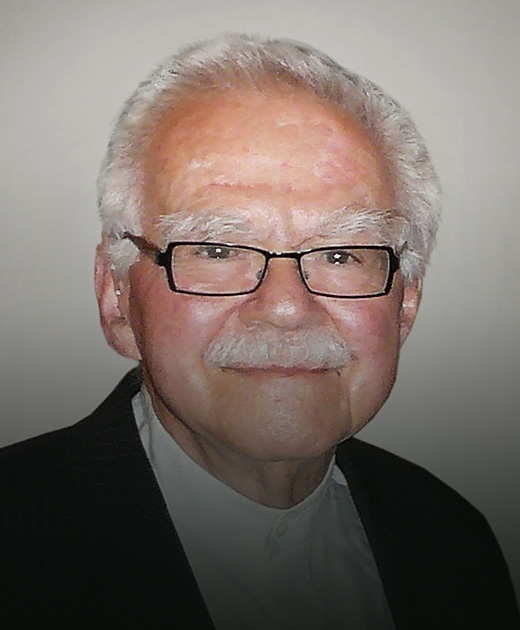Pavel Kohn
Born in 1929 / Prague
"We only wanted one thing, and that was food. Food was the most important thing for us. You eat everything you can bite and swallow. Without knowing what. Even something which is not cooked. Raw potatoes were an unattainable dream for us."
1929
Writer and journalist Pavel Kohn was born on October 14, 1929 in Prague-Vinohrady. He lived in Terezín, Auschwitz and Buchenwald during the war, surviving as the only one from the whole family. His father died in Terezín, he last saw his mother in the Auschwitz-Birkenau concentration camp, and his brother Karel was murdered there later.
1945
Pavel Kohn traveled from Auschwitz to the Blechhammer labor camp, and at the beginning of 1945, when he was only fourteen, he found himself in a death march, which reached Gross-Rosen. Out of 5,000 prisoners who set out from Blechhammer on January 19, only three hundred reached their destination. Pavel Kohn arrived in Buchenwald together with other prisoners in open wagons intended for coal transport on February 10, 1945, and later reached the Children's Block 66. After arriving at the camp, he fell ill. Antonín Kalina sent him to a former brothel, which at that time served as an infirmary, and spent the end of the war there. "We only wanted one thing, and that was food. Food was the most important thing for us. You eat everything you can bite and swallow. Without knowing what. Even something which is not cooked. Raw potatoes were an unattainable dream for us.” He returned to Prague on May 20, 1945, but was left alone. That's why he recovered from the horrors of war at the Štiřín chateau in the sanatorium of Přemysl Pitter, who cared for abandoned children and war orphans.
1967
Pavel Kohn studied dramaturgy at the Academy of Performing Arts, worked in the theater in Karlovy Vary and later became a freelance journalist. He was released from the theater in Karlovy Vary for political reasons, so he made his living as a theater critic and publicist. In 1967, he made use of the invitation of his adoptive mother, who had emigrated in 1948, and went to West Germany with his wife Rut and children. From January 1968, he worked for Radio Free Europe for a long time - twenty-two years.
2005 / 2012
He participated in making two important documentaries about the Holocaust - Children from Buchenwald (2005) and Kinderblock 66: Return to Buchenwald (2012). He dedicated the end of his life to the memory of the Christian humanist Přemysl Pitter, who took care of impoverished Czech, Jewish and German children who had no one to return to after the war. He introduced Pitter´s post-war sanatoriums in books Můj život nepatří mně (My Life Does Not Belong to Me), Kolik naděje má smrt (How Much Hope The Death Has) or Zámky naděje (Castles of Hope). On his eightieth birthday, he published a collection of poetic juvenilia from 1945–1949 Kolikrát přešel mrak (How Many Times The Cloud Has Passed).
2017
Pavel Kohn died on June 18, 2017 in Germany.
